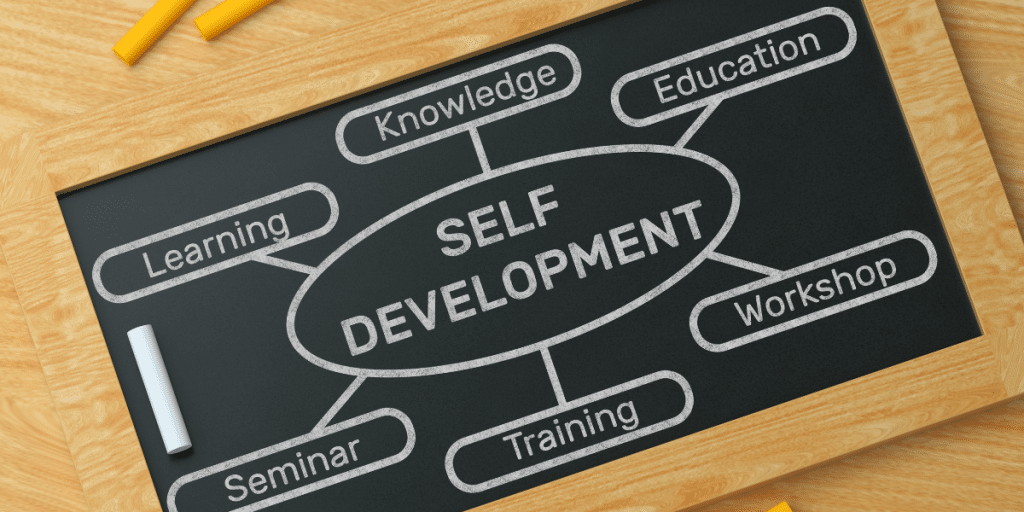As humans, we all have the desire to grow and become the best versions of ourselves. Self-improvement is a lifelong journey that involves making intentional changes in our thoughts, behaviors, and habits to achieve our goals and unlock our full potential. In this ultimate guide to self-improvement, I will explore the benefits of self-improvement, the importance of self-awareness, how to identify areas for self-improvement, creating a self-improvement plan, tips and techniques on how to work on yourself, developing positive habits, overcoming obstacles, resources for self-improvement, the role of accountability, and measuring progress.
Introduction to Self-Improvement
Self-improvement is the process of enhancing our knowledge, skills, and abilities to become the best versions of ourselves. It involves making intentional changes in our thoughts, behaviours, and habits to achieve our goals and unlock our full potential. Self-improvement is not a one-time event but a lifelong journey. It requires a growth mindset, motivation, and a willingness to learn and adapt.
Benefits of Self-Improvement
The benefits of self-improvement are numerous. It helps us to become more self-aware, develop positive habits, and achieve our goals. Self-improvement also enhances our mental and emotional well-being, increases our confidence, and improves our relationships. When we work on ourselves, we become more resilient and better equipped to handle life’s challenges. Additionally, self-improvement can lead to career advancement, financial stability, and personal fulfillment.
The Importance of Self-Awareness
Self-awareness is a crucial aspect of self-improvement. It involves understanding our strengths, weaknesses, values, and beliefs. Self-awareness enables us to identify areas for improvement and develop a plan to achieve our goals. It also helps us to recognize our triggers and patterns of behavior that may be holding us back. Developing self-awareness requires mindfulness, reflection, and an openness to feedback from others.
Identifying Areas for Self-Improvement
Identifying areas for self-improvement requires self-reflection and an honest assessment of our strengths and weaknesses. We can start by asking ourselves questions such as: What are my goals? What are my values? What areas of my life do I want to improve? We can also seek feedback from others to gain a different perspective on our strengths and weaknesses. Once we have identified our areas for improvement, we can develop a plan to achieve our goals.
Creating a Self-Improvement Plan
Creating a self-improvement plan involves setting specific, measurable, achievable, relevant, and time-bound (SMART) goals. Our goals should align with our values and be realistic and achievable. We can break down our goals into smaller, manageable steps and create a timeline to track our progress. Our plan should also include strategies for overcoming obstacles and developing positive habits.
How to Work on Yourself – Tips and Techniques
Working on ourselves requires discipline, self-motivation, and a willingness to learn and grow. Here are some tips and techniques on how to work on yourself:
- Set aside time for self-reflection and self-care.
- Practice mindfulness and meditation to develop self-awareness.
- Read books, listen to podcasts, and take courses to gain new knowledge and skills.
- Seek feedback from others to gain a different perspective on your strengths and weaknesses.
- Surround yourself with positive and supportive people who will encourage and motivate you.
- Challenge yourself to step outside of your comfort zone and try new things.
- Celebrate your successes and learn from your failures.
Developing Positive Habits for Self-improvement
Developing positive habits is essential for self-improvement. Our habits shape our thoughts, behaviours, and actions. Positive habits can lead to increased productivity, better health, and a more fulfilling life. Here are some tips for developing positive habits:
- Start small and focus on one habit at a time.
- Make your habits specific, measurable, and achievable.
- Use positive affirmations to reinforce your habits.
- Create a routine and stick to it.
- Find an accountability partner who will support and encourage you.
- Reward yourself for your progress.
Overcoming Obstacles in Self-Improvement
Obstacles are a natural part of the self-improvement journey. They can be external or internal and can prevent us from achieving our goals. Overcoming obstacles requires resilience, persistence, and a growth mindset. Here are some strategies for overcoming obstacles:
- Reframe your mindset and focus on solutions rather than problems.
- Break down your goals into smaller, manageable steps.
- Develop a support system of people who will encourage and motivate you.
- Learn from your failures and mistakes.
- Practice self-compassion and don’t be too hard on yourself.
- Use visualization and positive affirmations to stay motivated.
Resources for Self Improvement – Books, Podcasts, and Courses
There are numerous resources available to help us on our self-improvement journey. Books, podcasts, and courses can provide us with new knowledge, skills, and insights. Here are some recommendations for resources:
- Books: “Atomic Habits” by James Clear, “The Power of Now” by Eckhart Tolle, “The 7 Habits of Highly Effective People” by Stephen Covey.
- Podcasts: “The Tim Ferriss Show,” “The School of Greatness with Lewis Howes,” “The Tony Robbins Podcast.”
- Courses: “The Science of Well-Being” by Yale University, “Learning How to Learn” by University of California San Diego, “The Power of Vulnerability” by Brené Brown.
The Role of Accountability in Self-Improvement
Accountability is a crucial aspect of self-improvement. It involves taking responsibility for our actions and being answerable to others. Accountability can help us to stay motivated, focused, and on track towards our goals. Here are some strategies for accountability:
- Find an accountability partner who will support and encourage you.
- Set up regular check-ins to track your progress.
- Use a habit tracker or journal to monitor your progress.
- Join a group or community of like-minded individuals who are also working on self-improvement.
- Reward yourself for reaching milestones.
Measuring Progress in Self-Improvement
Measuring progress is essential for self-improvement. It allows us to see how far we have come and identify areas for improvement. Measuring progress also helps us to stay motivated and focused on our goals. Here are some strategies for measuring progress:
- Use SMART goals to track your progress.
- Create a timeline to monitor your progress.
- Use a habit tracker or journal to record your progress.
- Celebrate your successes and milestones.
- Seek feedback from others to gain a different perspective on your progress.
Conclusion
Self-improvement is a lifelong journey that requires a growth mindset, motivation, and a willingness to learn and adapt. It involves making intentional changes in our thoughts, behaviors, and habits to achieve our goals and unlock our full potential. By following the tips and techniques outlined in this ultimate guide to self-improvement, we can become the best versions of ourselves and achieve our goals. Remember to stay motivated, stay focused, and celebrate your successes along the way.












